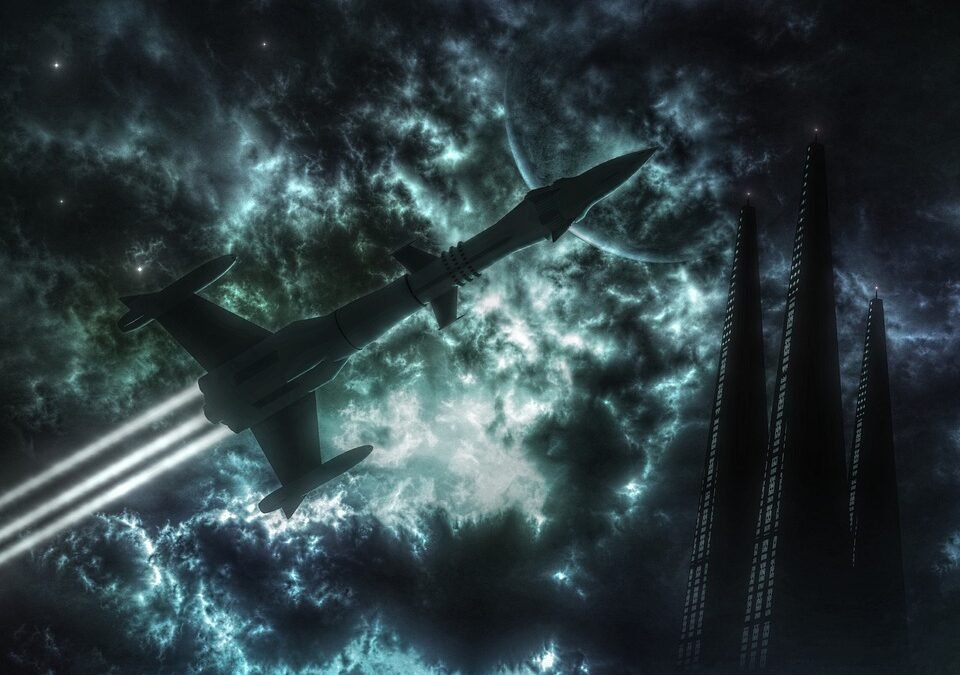From Big Bang to Rebirth: The Scientific Theory of Universal Renewal
Introduction
The concept of universal renewal has fascinated humanity for centuries. From ancient mythologies to modern scientific theories, the idea of a cyclical universe has been a subject of contemplation and exploration. In this article, we will delve into the scientific theory of universal renewal, exploring its roots in the Big Bang theory and its implications for the future of our universe.
The Big Bang Theory
The Big Bang theory is the prevailing scientific explanation for the origin of the universe. According to this theory, the universe originated from an incredibly hot and dense state approximately 13.8 billion years ago. This initial singularity then rapidly expanded, giving birth to space, time, and matter.
As the universe expanded, it cooled down, allowing the formation of elementary particles such as protons, neutrons, and electrons. Over time, these particles combined to form atoms, which eventually led to the formation of stars, galaxies, and other cosmic structures.
Universal Expansion and Cosmic Evolution
One of the key observations supporting the Big Bang theory is the universal expansion. Scientists have discovered that galaxies in our universe are moving away from each other, suggesting that the universe is expanding.
This expansion implies that the universe has a history, evolving over time. Through the study of cosmic microwave background radiation and the distribution of galaxies, scientists have been able to reconstruct the timeline of cosmic evolution, tracing the formation of stars, galaxies, and larger structures.
Entropy and Universal Renewal
Entropy is a fundamental concept in thermodynamics, which describes the tendency of systems to move towards a state of disorder. In the context of the universe, entropy plays a crucial role in the theory of universal renewal.
According to the second law of thermodynamics, the entropy of a closed system always increases or remains constant. This implies that the universe, as a closed system, will eventually reach a state of maximum entropy, known as the heat death of the universe.
However, some scientists propose that universal renewal may occur even in the face of increasing entropy. They suggest that as the universe approaches the state of maximum entropy, new processes may emerge, leading to a renewal of the universe.
Theories of Universal Renewal
Several theories have been put forward to explain the possibility of universal renewal. One such theory is the cyclic model, which suggests that the universe undergoes an infinite series of cycles, with each cycle beginning with a Big Bang and ending with a Big Crunch.
Another theory is the oscillating universe model, in which the universe expands and contracts in a repeating cycle. According to this model, the universe experiences a series of Big Bangs followed by periods of contraction, leading to a continuous renewal of the universe.
Implications and Future Research
The concept of universal renewal has profound implications for our understanding of the universe and its ultimate fate. If the universe is indeed cyclic or oscillating, it suggests that our current universe is just one iteration in an infinite series of cosmic cycles.
Furthermore, the theory of universal renewal opens up avenues for further research and exploration. Scientists are actively studying the cosmic microwave background radiation, dark matter, and dark energy, hoping to uncover more evidence and insights into the nature of our universe and its potential for renewal.
FAQs
1. Is there any evidence supporting the theory of universal renewal?
While the theory of universal renewal is still speculative, there are some pieces of evidence that point towards the possibility of cyclical or oscillating universes. These include observations of cosmic microwave background radiation, the distribution of galaxies, and the study of dark matter and dark energy.
2. What happens during the Big Crunch phase in the cyclic model?
In the cyclic model, the Big Crunch phase is the end of a cosmic cycle, where the universe contracts under the influence of gravity. This contraction eventually leads to a singularity, similar to the initial state before the Big Bang, from which a new cycle may emerge.
3. How does the theory of universal renewal relate to the concept of the heat death of the universe?
The theory of universal renewal challenges the idea of the heat death of the universe, which suggests that the universe will eventually reach a state of maximum entropy and become lifeless. It proposes that new processes or mechanisms may emerge, leading to the renewal and rejuvenation of the universe.
4. Are there any ongoing experiments or observations to test the theory of universal renewal?
Scientists are actively conducting experiments and observations to gather more evidence and insights into the possibility of universal renewal. These include studying the cosmic microwave background radiation, conducting experiments with particle accelerators, and investigating the behavior of dark matter and dark energy.
5. Can the theory of universal renewal provide answers to questions about the ultimate fate of our universe?
The theory of universal renewal offers a potential alternative to the heat death of the universe, suggesting that the universe may have a cyclical or oscillating nature. While it does not provide definitive answers, it opens up new avenues for scientific inquiry and exploration into the fate of our universe.
Conclusion
The scientific theory of universal renewal presents an intriguing perspective on the evolution and fate of our universe. While still speculative, this theory challenges the notion of a one-time Big Bang followed by an inevitable heat death. The possibility of cyclical or oscillating universes raises exciting questions and avenues for further research, inviting scientists to explore the mysteries of our cosmos and contemplate the potential for rebirth within the vastness of space and time.

